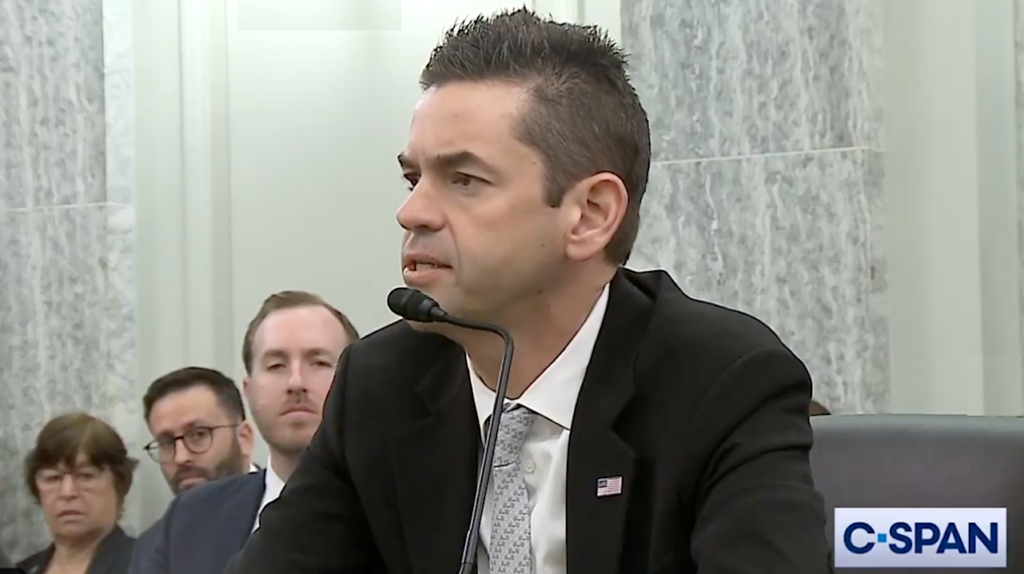NASA Priorities For The House Science Committee

Science, Space, and Technology Committee Announces Priorities for the 115th Congress
“Rebalancing NASA’s portfolio and setting course for its future successes will also be a key priority this Congress. … Constancy of Purpose within NASA: The Committee will continue to ensure that the National Aeronautics and Space Administration pursues a balanced portfolio of programs reinvigorated with bold exploration objectives. Building upon the progress made towards development of the Space Launch System, Orion, and the commercial crew and cargo programs, the committee will ensure NASA stays the course and leads the world in not only space exploration, but also space science.”









Hopefully this new purpose, whatever it is, will in its implementation not see the loss of too many time-hardened, experienced and uniquely skilled people. The greatest drain on our economy and impedance to the advancement of our species is through the waste of knowledge gained in the turn over within any industry. Our species reinvents the wheel enough due to ego, hubris and greed. Those in the sciences and engineering should be intelligent enough to think ahead and forthright enough to not reinvent the wheel yet again.
It’s not the scientists and engineering that you should be worried about. Try your new president and certain Congress members.
Cheers
No, its always a problem. We lost a lot of good Space Shuttle people in just that program transition. It always happens and no one wants to learn from it or do a cost analysis on just how much money is wasted.
United Space Alliance was a big company and naturally had some inefficiencies, but by and large I was tremendously impressed by the technical knowledge, craftsmanship and dedication of the people who maintained the space shuttles, almost all of whom were summarily dismissed when the program ended.
I may be cynical, but I’m not sure all the engineers (or, more to the point, their managers) mind reinventing the wheel. If you can find a plausible justification for it, you get lots of nice things. Job security and a charge number to bill for several years, more government funding for your project and institution, something more impressive to put on your CV and performance evaluation (since you had to do all that extra work.) Unfortunately, there are a number of motives for making your job as demanding (and therefore impressive) as you can handle. No one gets awards or promotions for efficiently doing easy jobs.
Yep. You’re cynical.
Now get off my lawn.
“No one gets awards or promotions for efficiently doing easy jobs”
During the 2004 election lines were around the block at every precinct here in Naples. My letter to the editor criticizing the Supervisor of Elections for insufficient machine counts was roundly pilloried. She was re-elected.
As I just saw on Facebook: ‘”Balanced portfolio” is code for gutting earth science, and sending more dough to big aerospace. “Sound science” is code for science with which the extraction industry can live. “Data transparency” is code for hounding scientists with whose conclusions the extraction industry doesn’t agree. A set of policies bought and paid for.’
Yea there’s certainly a lot of code talking going on. I wish we had the codebook.
Potentially not just a code. Government reports and managers in general seem to speak a different language. I suspect politicians do as well. Look for different grammar and syntax as well as different vocabulary.
I’d say your code is correct more likely than not. As with many a dog whistle used this last election, anyone denying nuances and wording mean something more specific is either in on the game, looking the other way as convenient, or near clueless.
Take the code words “small government.” At face value it means a smaller budget for this or that agency, a smaller interior department. Even a smaller NASA. What it’s really code word for though has nothing to do with that, not the all.
Judging some people undeserving. Pulling the ladder up after yourself. Blaming others offhand for complex problems. Pointing fingers. Exploiting fear. The wealthy giving themselves more tax breaks. Creating a weaker government, so those few can run things, and run over the many.
Secret decoder ring not required.
Bill Moyers
https://www.facebook.com/mo…
Can’t we have the energy we need without screwing up the planet? Of course we can.